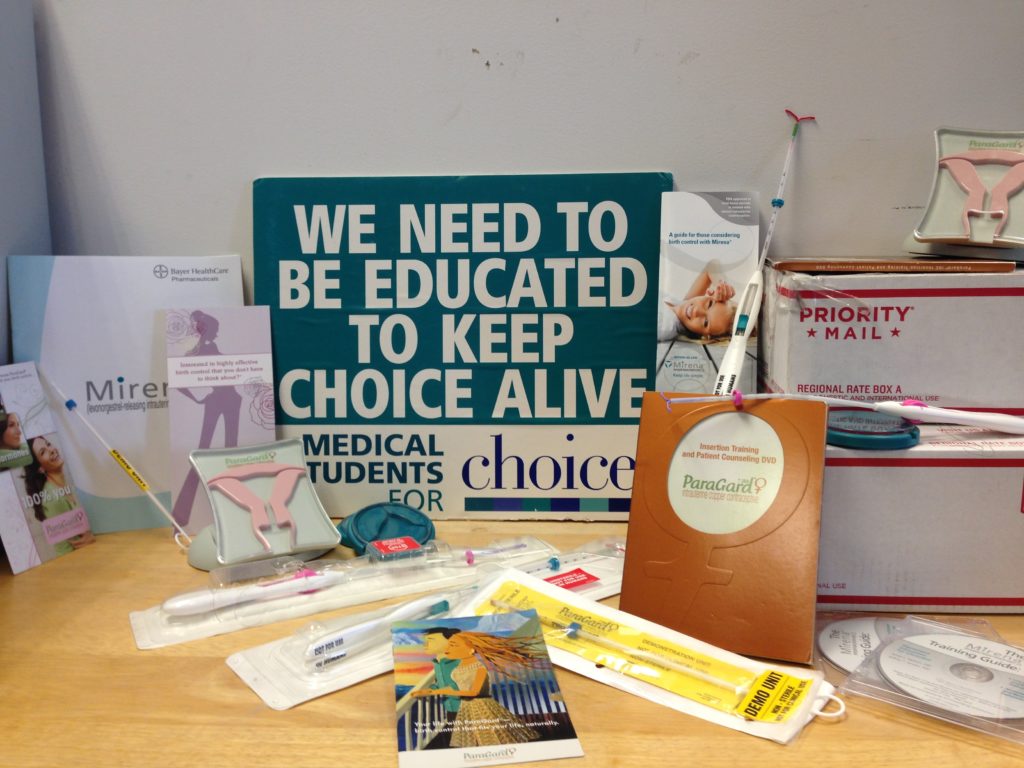By: Taylor Stanton
Since I only discovered MSFC after my first year of medical school, I thought I had already missed my chance at taking part in the Reproductive Health Externship (RHE). It was at the annual conference on family planning that two important things changed: a fellow student suggested doing the RHE during my fourth year as elective credit, and Dr. Chastine was the closing speaker for the conference. Suddenly it clicked that I wanted to do my RHE down in Wichita, KS at Dr. Tiller’s re-opened clinic. It would be the perfect intersection of my own conservative town in which there are zero providers and my family planning rotation at Einstein in New York City, where access isn’t necessarily a problem. The first thing I did upon returning to Illinois after the conference was email Dr. Chastine and the clinic’s director to set up a rotation for the following fall.
I didn’t realize until I was eight hours into the drive that I probably couldn’t have picked out Kansas on a map, let alone Wichita. I was nervous that the couple I was renting a room from for the month would turn out to be anti-choice religious zealots and kick me to the curb. I was worried that I wouldn’t have any friends. Of course, driving up to the clinic the first day, everything changed. The clinic had such a warm feel to it, from the front door’s guard who joked with me as he scanned my bag to the quotes from Dr. Tiller on the wall of the lobby. Naturally, the front staff was amazing. When the clinical staff began to show up, an older spiky haired nurse took me under her wing to teach me the ins and outs of the procedures and the clinic. I was amazed to see a Thank You letter on their fridge that my MSFC chapter had made and sent to them nearly two years prior. It was only after our tour that one of the other nurses informed me that my guide was one of the original authors for Our Bodies, Ourselves. I was surrounded by history and those dedicated to making further history.
In the clinic I assisted with pre- and post-procedure ultrasounds and observed both first and second trimester abortions. Having already completed a month of family planning at Einstein, the procedures themselves no longer shocked me. A new challenge for me was the constant presence of protestors in the driveway. Whether the patient was a mother of five unable to afford another child or a woman devastated by the fact her very wanted fetus was anencephalic, she had to pass by grotesque signs held by protestors that recorded the license plates of everyone who came into the clinic. Windows had to stay rolled up lest they throw propaganda into your car and small crosses dotted the lawn. I was determined not to give them the time of day. If our patients could drive past them to receive our services, then I could pass them daily to help provide.
The other major difference from my experience in New York was the lengths our patients had to go to in order to even reach the clinic. They drove in from all neighboring states, even as far as twenty hours one-way from Texas, with its rapidly dwindling access. They found friends to stay with overnight if they were having a two-day second trimester procedure. They came up with money that, honestly, I don’t think I would be able to easily produce. But of course, these were the women I had envisioned helping when I decided to become a provider, and they were the reason the doctors, nurses, and staff at my clinic went to great lengths themselves to ensure the clinic stayed open.
Since my externship experience, I have realized my view of what it means to be a Provider has changed. Before this experience, I imagined that a doctor would only provide abortions full time or not at all. However, it is not as clear-cut: being a provider or not. The three doctors at the clinic worked there in different capacities and from three different geographical locations. Only one lived in Kansas . They each brought unique expertise while overall providing abortion and contraceptive care. Having worked with each of them, I realized that I had far more options for how abortion might fit into my future practice.
Looking toward my own future as a physician, a pursuit born from the simple desire to provide abortions for women who cannot get them easily, I am realizing that I do not know exactly where in the world of Family Planning I am going to settle. What I do know after my externship, however, is that I am reinvigorated to finish my studies and get out into the wider world. Unfortunately, women will most likely still be driving for days to reach our clinics, but I want to be the doctor there at the end of her drive to take care of her.
To find out more about the Reproductive Health Externship, join MSFC’s Google Hangout Q&A session on April 10th .
